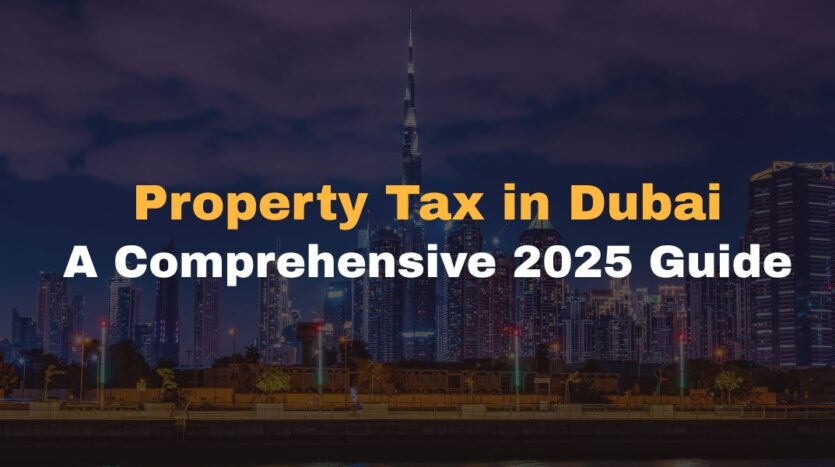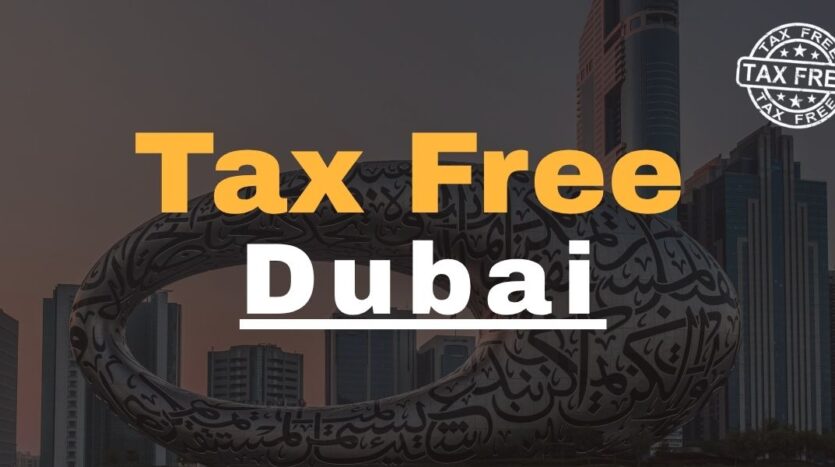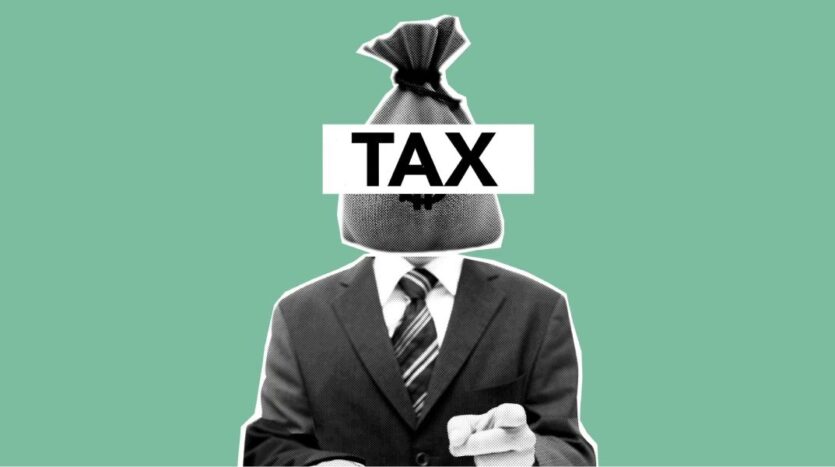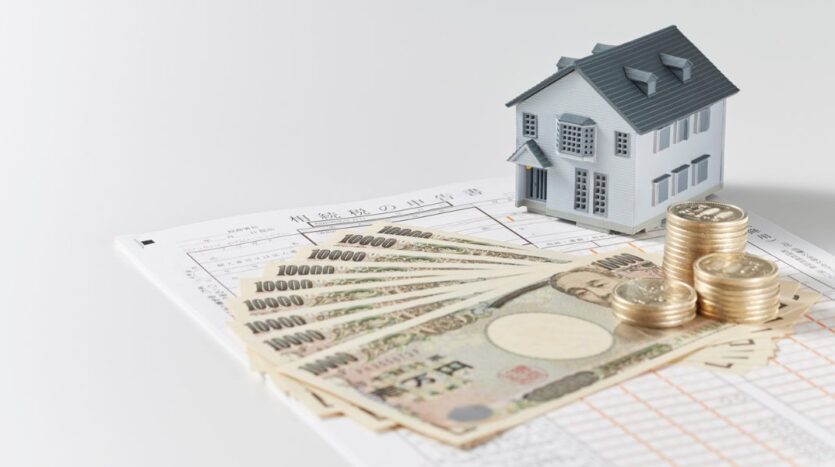Property Tax in Dubai: A Comprehensive 2025 Guide
Introduction about Property Tax in Dubai
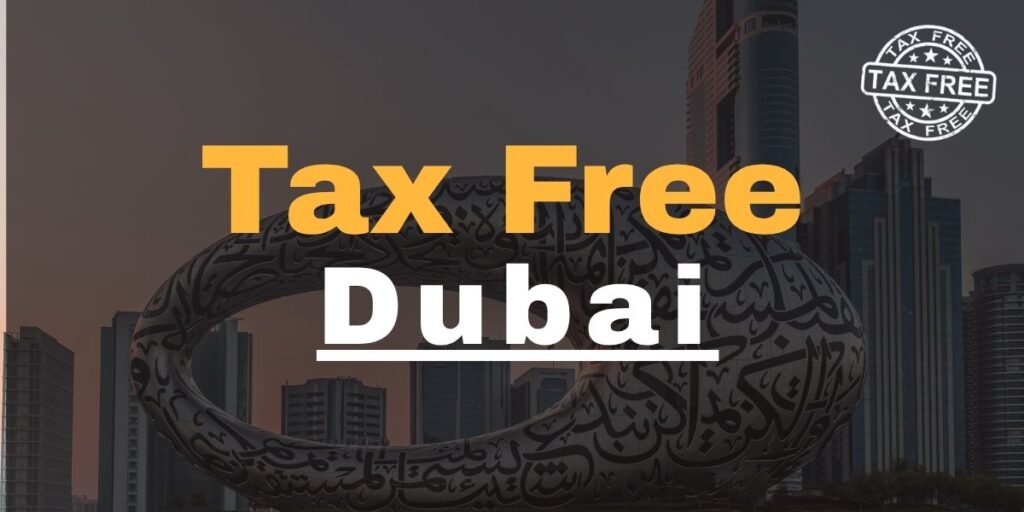
Dubai’s real estate market continues to captivate investors and homeowners worldwide, standing as a beacon of opportunity in the global property landscape. As we navigate through 2025, understanding the tax implications of property ownership in this dynamic emirate has become more crucial than ever. Unlike traditional property markets where annual taxes can significantly erode investment returns, Dubai offers a uniquely favorable environment that challenges conventional real estate taxation models.
For potential investors and homeowners, grasping the nuances of Dubai’s property tax framework isn’t just beneficial—it’s essential for making informed financial decisions. The emirate’s distinctive approach to real estate taxation, combined with its strategic location, world-class infrastructure, and business-friendly policies, creates an investment ecosystem that demands careful consideration. Whether you’re a first-time buyer exploring apartments in Dubai Marina or a seasoned investor eyeing luxury villas in Palm Jumeirah, this comprehensive guide will navigate you through the tax landscape that makes Dubai one of the world’s most attractive property markets.
Current Property Tax Overview
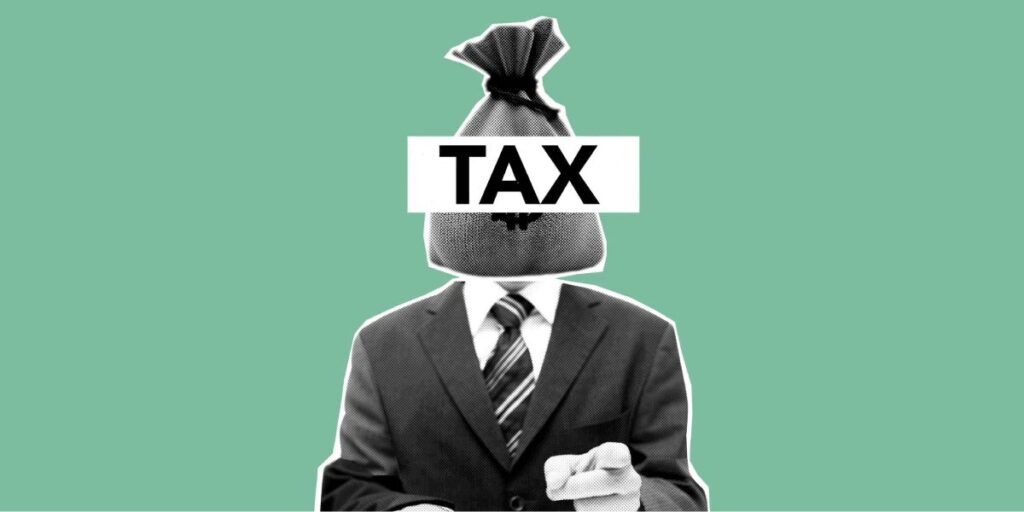
The most striking feature of Dubai’s property market is elegantly simple: there is no annual property tax on residential real estate. This fundamental distinction sets Dubai apart from virtually every major global city and represents a cornerstone of the emirate’s investment appeal. However, while homeowners enjoy freedom from recurring property taxes, several important fees and charges require attention.
One-Time Transfer and Registration Fees
When purchasing property in Dubai, buyers encounter the Dubai Land Department (DLD) fee—a 4% charge calculated on the property’s purchase price. This one-time cost is typically shared equally between buyer and seller, though negotiation can shift this balance. Additional administrative fees include AED 540 for transaction processing, while registration fees vary based on property value: AED 2,000 for properties under AED 500,000 and AED 4,000 for those above this threshold.
For mortgage-financed purchases, buyers pay an additional 0.25% of the loan amount plus AED 290 in mortgage registration fees. While these costs may appear significant upfront, they pale in comparison to the cumulative burden of annual property taxes in other major cities.
Municipal Housing Fees
Property owners in Dubai pay a 5% housing fee based on the annual rental value of their property, which is automatically added to DEWA utility bills. For tenants, this same 5% municipal tax applies to residential rentals. Commercial properties face a 10% municipal tax when rented, reflecting the higher revenue potential of business-use properties.
Value-Added Tax (VAT) Considerations
VAT at 5% applies to new commercial properties and certain real estate services, but generally not to residential property sales or rentals. This exemption for residential transactions further enhances affordability for individual buyers and homeowners. When purchasing commercial property, new owners additionally pay a 5% VAT, which represents a significant consideration for business investors.
Tax-Free Investment Returns
Perhaps most compelling for investors, Dubai imposes no personal income tax on rental earnings and no capital gains tax on property sales. This means rental income flows directly to property owners without deduction, and profits from property appreciation remain entirely with the investor. Additionally, there is no inheritance tax in Dubai, simplifying estate planning for international investors concerned about wealth transfer.
Property Types Subject to Fees
The fee structure applies universally across residential properties—from studio apartments to palatial villas. Commercial properties including offices, retail spaces, and warehouses face slightly different treatment, particularly regarding VAT. However, the absence of annual property tax remains consistent across all categories, creating a level playing field that rewards long-term investment strategies.
Comparison with Global Standards

Dubai’s property tax framework stands in stark contrast to established markets worldwide, offering insights into why the emirate attracts such substantial international capital.
Dubai vs. London
London imposes annual council tax on residential properties, with rates varying by property value band and local authority. British homeowners also face stamp duty land tax on purchases, which can reach 12% for high-value properties. Additionally, landlords pay income tax on rental earnings at rates up to 45%, and capital gains tax applies to property profits above certain thresholds. The cumulative effect creates a substantially higher cost of ownership compared to Dubai’s streamlined approach.
In Dubai, the one-time 4% DLD fee and absence of ongoing taxes mean investors retain significantly more of their returns. A property generating AED 100,000 in annual rental income yields the full amount to investors in Dubai, whereas London-based landlords would surrender nearly half to various taxes.
Dubai vs. New York
New York’s tax structure proves even more complex, with property taxes calculated based on assessed values and varying by property class and location. Manhattan properties typically face annual property taxes ranging from 0.88% to over 2% of assessed value. State and city income taxes further erode rental returns, while capital gains face federal, state, and city taxation layers.
New York also imposes a mansion tax on luxury properties and transfer taxes on sales. For a $1 million property, annual costs including property tax alone could exceed $15,000—an expense that accumulates year after year. Dubai’s comparable property would incur a one-time AED 40,000 DLD fee (approximately $11,000) with no recurring tax burden.
Key Advantages of Dubai’s System
The emirate’s approach delivers several distinct benefits. First, predictability—investors can accurately calculate total ownership costs without worrying about annual tax increases. Second, cash flow optimization—rental income isn’t diluted by income taxes, enhancing yields. Third, capital preservation—appreciation gains remain untaxed, accelerating portfolio growth. Finally, estate planning simplicity—no inheritance taxes means straightforward wealth transfer to beneficiaries.
Potential Disadvantages
Critics note that Dubai’s fees, while one-time, still represent substantial sums. The 4% DLD fee on a AED 2 million property equals AED 80,000 upfront. However, when amortized over typical holding periods, this cost remains significantly lower than cumulative annual taxes in traditional markets. Additionally, some argue that without property taxes, revenue generation shifts to other sources, potentially creating different economic pressures.
Future Trends

Dubai’s property taxation landscape appears stable in 2025, though several dynamics warrant investor attention as the market evolves.
Government Policy Direction
The Dubai 2040 Urban Master Plan guides the emirate’s development strategy, focusing on sustainable, livable communities while optimizing land use and enhancing infrastructure. Strategic initiatives including the Dubai Economic Agenda D33 and Real Estate Sector Strategy 2033 aim to position Dubai among the top three global cities for business and living. These frameworks emphasize maintaining Dubai’s tax competitiveness while fostering innovation in PropTech, green development, and smart city integration.
The introduction of corporate tax at 9% for businesses earning above AED 375,000 annually represents Dubai’s most significant recent tax policy shift. However, this affects business entities rather than individual property owners, and companies in Free Zones remain exempt. The government has consistently reaffirmed its commitment to maintaining the zero personal income tax policy, recognizing its crucial role in attracting global talent and investment.
Expert Predictions
Real estate analysts anticipate Dubai’s tax-friendly framework will remain intact through the foreseeable future. Experts forecast an 8% rise in residential property values through 2025, driven by strategic government initiatives, population growth exceeding 5% annually, and continued infrastructure investment. Looking toward 2026, property prices are projected to increase by 3.5% to 5.2% despite increased supply, suggesting sustained demand absorption.
However, Fitch Ratings predicts a moderate correction of no more than 15% beginning in the second half of 2025 due to record supply delivery. This adjustment, characterized as normalization rather than collapse, stems from approximately 120,000 units scheduled for delivery in 2026 alone. Importantly, analysts emphasize that underlying fundamentals including population growth and economic diversification continue supporting long-term demand.
Global Economic Influences
International economic trends increasingly impact Dubai’s market. Rising global interest rates affect mortgage affordability, potentially tempering demand growth. Conversely, geopolitical instability in other regions often drives capital toward Dubai’s stable, secure environment. Over 58% of property transactions in Q2 2025 were driven by international investors from India, the UK, China, and Russia, demonstrating the emirate’s safe-haven appeal.
The strengthening of double taxation agreements with over 130 countries enhances Dubai’s attractiveness for investors concerned about tax residency issues. As Western nations implement stricter tax regimes and wealth taxes, Dubai’s zero-tax framework becomes increasingly compelling. Climate change concerns may also drive demand for Dubai’s modern, sustainable developments as coastal cities worldwide face rising sea levels.
Potential Policy Adjustments
While unlikely in the near term, potential future changes could include modifications to the DLD fee structure, introduction of annual service charges in specific developments, or adjustments to commercial property VAT rates. However, any substantial changes would likely include grandfather clauses protecting existing investors, maintaining Dubai’s reputation for policy stability and investor protection.
Practical Tips for Property Buyers
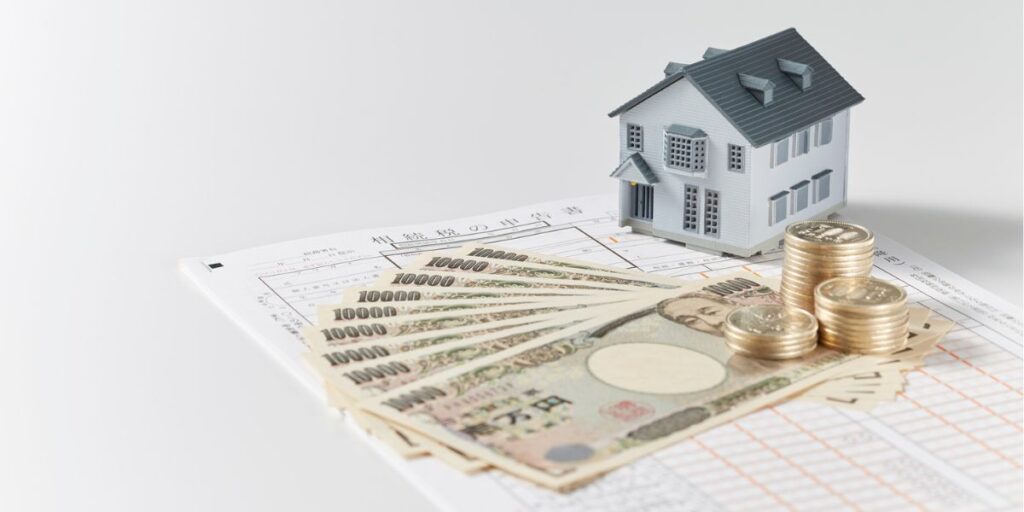
Successfully navigating Dubai’s property market requires strategic planning and informed decision-making beyond understanding the tax framework.
Calculating Total Ownership Costs
Begin by budgeting the 4% DLD fee, registration costs (AED 2,000-4,000), and administrative charges (AED 540) for your target property price. If financing through a mortgage, add 0.25% of the loan amount plus AED 290. For a AED 2 million property with 75% financing:
- DLD Fee: AED 80,000
- Registration: AED 4,000
- Administrative: AED 540
- Mortgage Registration: AED 4,040
- Total Initial Costs: AED 88,580
Beyond acquisition, budget for annual service charges averaging AED 10-25 per square foot depending on amenities, the 5% municipal housing fee calculated on rental value, DEWA connection and utilities, home insurance (often required by mortgage lenders), and community fees for villa developments. Smart investors create 18-month cash flow projections capturing all expenses to understand true investment requirements.
Pre-Purchase Preparation Steps
Start by obtaining mortgage pre-approval if financing, as this clarifies your budget and strengthens negotiating position. First-time buyers face an 80% loan-to-value cap, requiring a 20% down payment, while subsequent purchases require 40% down. Engage a reputable real estate agent familiar with your target areas—commission is typically 2% paid by the seller, but good representation proves invaluable.
Conduct thorough due diligence by verifying property ownership through DLD records, reviewing developer credentials and project completion timelines for off-plan purchases, inspecting physical condition for ready properties, and understanding homeowner association rules and fee structures. For villa communities, investigate master developer reputation and community management quality, as these significantly impact long-term satisfaction.
Consider hiring a property lawyer for transaction review, particularly for high-value purchases or complex ownership structures. While Dubai’s standardized contracts provide protection, legal guidance ensures your interests remain paramount. Budget AED 5,000-15,000 for comprehensive legal services depending on transaction complexity.
Essential Resources

The Dubai Land Department website offers comprehensive information on fees, procedures, and property registration. RERA (Real Estate Regulatory Agency) maintains databases of registered agents, developers, and property valuers. The Ejari system manages tenancy contracts registration—mandatory for all rental agreements.
For market intelligence, Property Finder and Bayut provide pricing data, market trends, and property listings. International firms including Knight Frank, Savills, and CBRE publish regular market reports offering professional analysis. Local banks including Emirates NBD and Mashreq offer competitive mortgage products with advisors who understand both financing and market dynamics.
Join expat forums and property investment groups for practical insights from experienced buyers. However, verify information through official channels, as anecdotal advice sometimes reflects outdated or inaccurate understanding. Attend property exhibitions like Cityscape Global to connect directly with developers and explore new projects.
Timing Your Purchase
With a moderate correction anticipated in late 2025, first-time buyers may find improved affordability while avoiding concerns about entering a declining market. Off-plan properties often provide payment flexibility and developer incentives that offset some acquisition costs. However, ready properties eliminate construction risk and generate immediate rental income.
Consider seasonal patterns—the market traditionally slows during summer months (June-August), potentially creating negotiating leverage. Conversely, January through March typically sees heightened activity as new year decisions and year-end bonuses drive purchases. For investors prioritizing rental yields over capital appreciation, areas experiencing supply increases may offer better value propositions.
Conclusion
Dubai’s property tax framework in 2025 represents one of the world’s most investor-friendly environments, distinguished by the absence of annual property taxes, zero taxation on rental income and capital gains, and straightforward one-time transaction fees. This structure transforms the economics of real estate investment, enabling higher returns and simplified financial planning compared to traditional markets where recurring taxes steadily erode profitability.
However, success requires more than tax advantages. Understanding the complete cost structure including DLD fees, service charges, and municipal fees proves essential for accurate investment analysis. The coming period presents both opportunities and considerations—potential price normalization may create entry points for buyers, while sustained demand fundamentals support long-term appreciation.
As Dubai continues evolving under visionary leadership and strategic development plans, its property market remains anchored by stable, transparent policies that protect investor interests. Whether you’re purchasing a primary residence, building a rental portfolio, or diversifying international holdings, staying informed about tax implications and market dynamics positions you for success.
The tax landscape may be straightforward, but the investment journey benefits greatly from professional guidance. Engage qualified real estate agents, financial advisors, and legal professionals who understand both local regulations and your specific objectives. Monitor official government sources for policy updates, track market trends through reputable analytics firms, and connect with the investor community for practical insights.
Dubai’s real estate market isn’t just about zero property taxes—it’s about a comprehensive ecosystem designed to facilitate wealth creation and preservation. By understanding the tax framework detailed in this guide and applying the practical strategies outlined, you’re equipped to navigate confidently toward your property investment goals in this exceptional market.
Have you invested in Dubai property or are you considering taking the plunge? Share your experiences, questions, or concerns in the comments below. Your insights help build a stronger, more informed investor community as we navigate Dubai’s dynamic real estate landscape together.
About the Author
Talento Real Estate stands as one of Dubai’s premier real estate agencies, distinguished by deep market knowledge, unwavering commitment to client success, and a proven track record of delivering exceptional returns on investment. Our team of experienced professionals combines intimate understanding of Dubai’s property landscape with personalized service that transforms property transactions into seamless experiences.
Whether you’re a first-time buyer seeking your dream home, an investor building a diversified portfolio, or an international client exploring Dubai’s opportunities, Talento Real Estate provides the expertise, market access, and strategic guidance that optimize outcomes. Our comprehensive services span residential and commercial properties, off-plan investments, secondary market transactions, property management, and investment consulting.
If you’re planning to invest in Dubai real estate and want to maximize your ROI while navigating the market with confidence, connect with Talento Real Estate today. Let our expertise work for you, turning Dubai’s property opportunities into your investment success story. Contact us for a complimentary consultation and discover how partnership with the right agency transforms your real estate journey.
Author: Md Talha Khan
Md Talha Khan is the Digital Marketing Manager & Content Strategist at Talento Real Estate, specializing in luxury real estate and hospitality marketing in Dubai. With expertise in crafting insightful, data-driven content, he simplifies complex real estate topics for international investors. His writing blends market analysis with lifestyle context, aligning with Talento Real Estate’s investor-focused approach. Connect with Talha on LinkedIn to explore his latest insights on Dubai’s dynamic property market.

